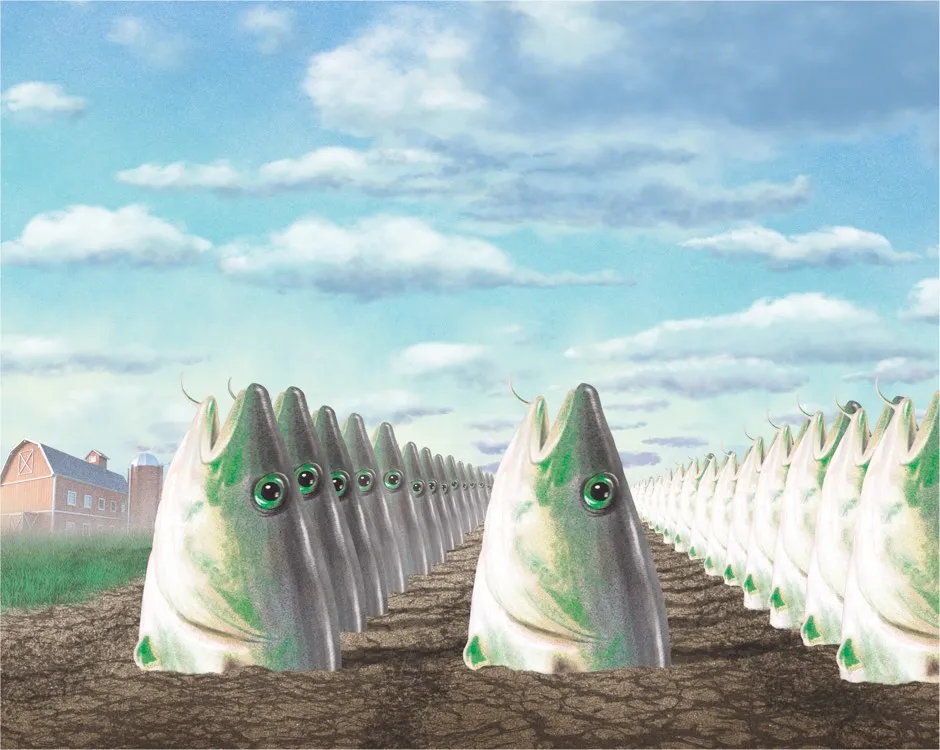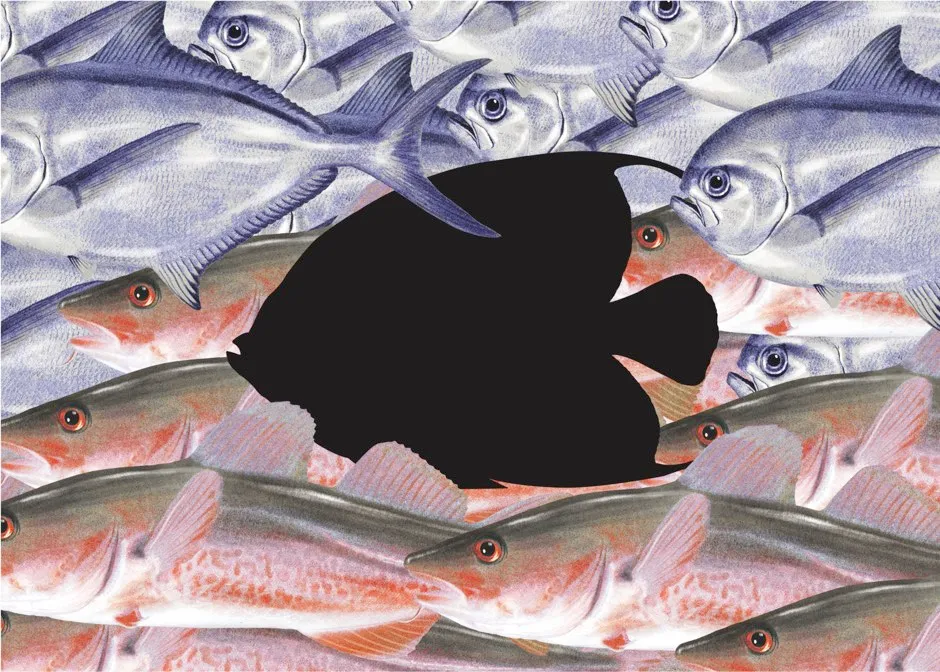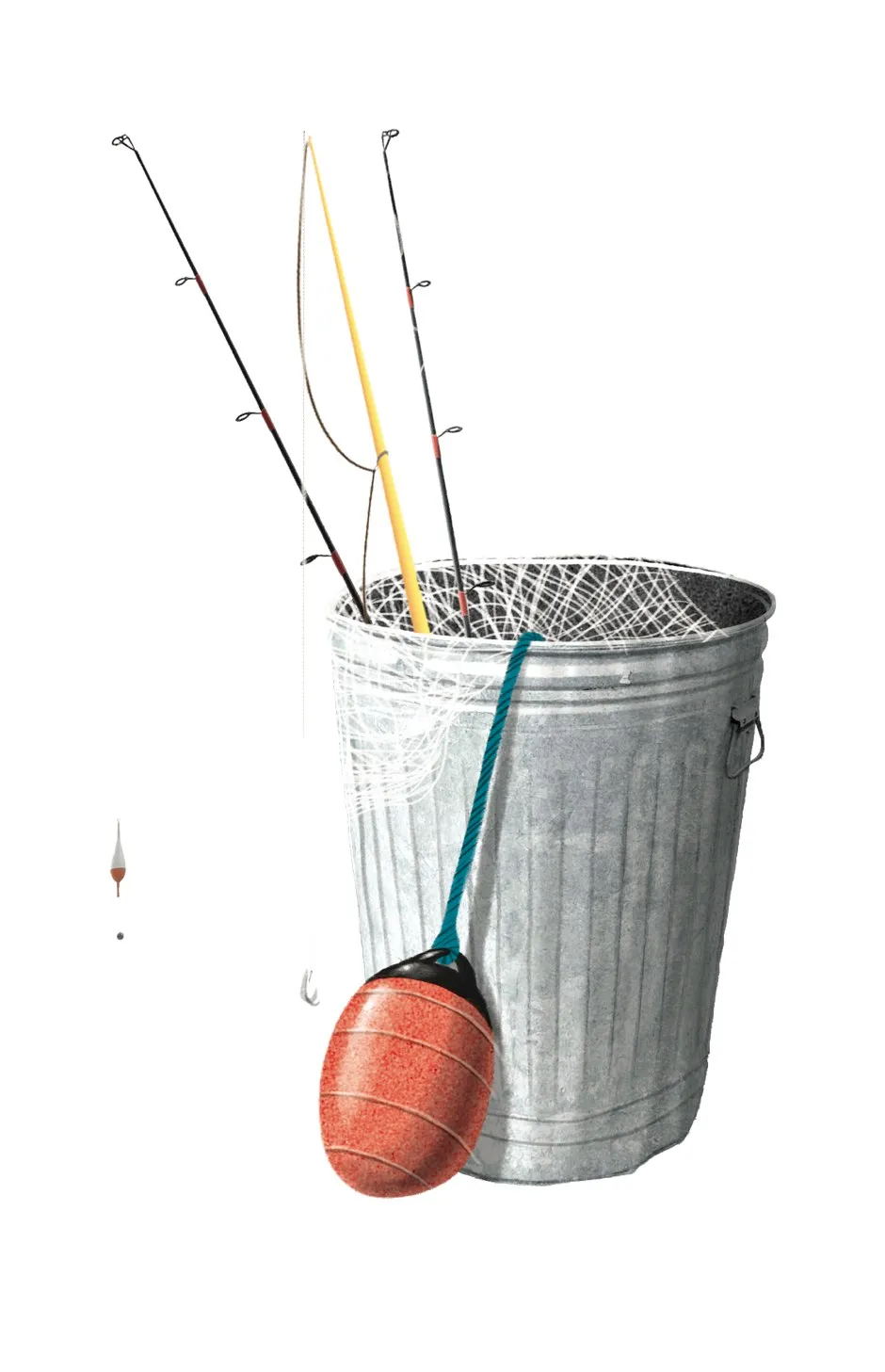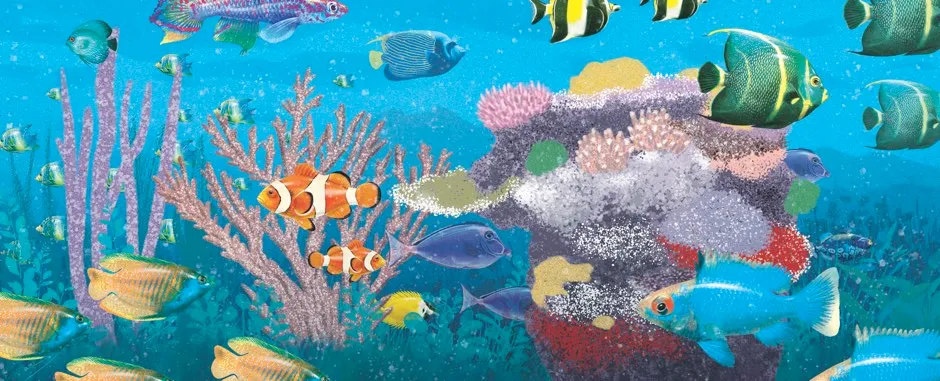On average, we each eat more than 20 kilograms of fish per year. Worldwide, between 1961 and 2016, fish consumption increased faster than meat consumption, and grew twice as fast as the human population.
All of these fishy dinners have depleted marine fish stocks to a point where a third of global fish stocks are now classed as ‘overfished’, meaning that if we continue fishing at the same levels, these populations will decline. Most of the rest are being exploited at the maximum levels that can be sustained without long-term decline.
Fishing also has negative impacts on non-food species in the ecosystem, and pollutes the waters with fishing waste. Temporary fishing bans may help to alleviate some of the worst impacts, but what would happen if we banned fishing altogether?
1
Millions would struggle to eat and earn enough
Around the world, 40 million people earn their living directly from catching wild fish, while another 19 million are employed in aquaculture – fish-farming or growing seafood in controlled conditions such as sea pens and cages, lochs and ponds.
But these figures may hide the true extent of the planet’s dependency on fishing. Along coasts, estuaries and coral reefs, millions of small-time fishers make a meagre wage from fishing, or catch fish just to put food in their families’ mouths. Some fishers don’t make the stats, and neither do their catches.

“A lot of the small-scale catches are distributed in informal markets, where they’re not recorded,” says marine ecologist Dr Steven Purcell at Southern Cross University in Coffs Harbour, Australia. His own studies suggest that 71 per cent of those fishing for Trochus sea snails in the Samoan islands eat them themselves or give them away to friends and neighbours.
Seafood is a major source of protein across Southeast Asia and islands in the Indian and Pacific Oceans. So while in Europe or the US we could eat more meat or soy products to make up for lost protein, a fishing ban could lead to food scarcity in communities with little land-based farming.
We can also envisage a black market developing for fish, as there currently is for beluga caviar in the US, where it’s banned. Eggs from the endangered beluga sturgeon are thought to be flown in privately to top Manhattan chefs. In the case of a total fishing ban, think less about caviar, more about ordering canned tuna from dodgy websites.
2
Seafood farms could step up to meet demand
Aquaculture already produces nearly half of the seafood we consume (or more, if you include seaweed), and we’ll have to increase that if we are to avoid decimating wild fish stocks.
Under a fishing ban, aquaculture could be our only source of seafood, meaning that, initially, we’d be eating a lot of Atlantic salmon – by far the most farmed fish across Europe.

“[Wild] fisheries allow you a diversity of products that aquaculture would probably take many years to get to,” says Dr Sofia Franco at the Scottish Association for Marine Science. But she hopes to see a wider range of farmed seafood on the menu in future, as expertise in different species and farming systems develops.
Until now, production has been largely in farms open to the sea, rivers, or lochs. Newer, land-based systems, such as tanks with recirculating water, could reduce pollution and damage to aquatic environments compared to the older systems.
Read more from our What if... series:
But could you supply all the world’s fish suppers without using a drop of actual seawater? Dr Rebecca Gentry, a marine scientist at Florida State University, suggests we wouldn’t need to. Theoretically, aquaculture in the sea could produce the equivalent of the world’s fishing catch in less than 1 per cent of the ocean surface, her 2017 paper shows.
“It’s an interesting thought experiment,” she says. “If we close all wild fisheries, look at this huge amount of ocean area that we’re no longer having an impact on.” She doesn’t want to paint “too sunny a picture” of aquaculture, though, noting that any large-scale food production fundamentally changes the environment.
3
Stocks would recover, but not all of them
Temporary bans on fishing of certain species are already used worldwide to maintain fish stocks and protect the environment. Some last a few weeks or months annually. These seasonal bans are designed to protect fish during their breeding seasons, for example, or to protect the sea bottom from damage, as with shrimp trawling bans. Others last most of the year, or longer, as in the current moratorium on fishing in the Arctic, which could last 16 years.
A total global fishing ban would increase stocks, while helping to rebalance upset ecosystems. Eating less lobster thermidor, for example, would help keep seaweed forests in good health, as the crustaceans prey on sea urchins that destroy kelp – a type of seaweed.

However, there are no guarantees of a full recovery in our oceans. According to Purcell, some species are already so badly affected by overfishing that they might never recover. In Papua New Guinea, the edible sea cucumbers that he studies – popular in Asian cookery – have been so voraciously harvested that their populations are down to one-hundredth of their pre-fishing levels.
“Once they get down to less than one animal per hectare, it’s very hard for the mates to find each other, particularly for these species that aren’t moving very fast,” Purcell says. “They have to crawl around on the seafloor to find each other.”
Meanwhile, north of Australia, some shellfish populations exploited by Indonesian fishers have declined to the point where so few are now reproducing that rebuilding their populations looks impossible.
4
The oceans would be cleaner
Recent years have seen single-use plastics demonised as the public has woken up to the effects of marine plastics. But few people realise the contribution that fishing makes. Lost fishing gear accounts for about 10 per cent of all marine litter and, according to a 2018 study, 86 per cent of the big pieces of plastic floating in the ‘Great Pacific Garbage Patch’.
Without fishing, we’d also wipe out pollution and emissions from fishing boats (one 2014 study claimed that lobsters were the most fuel-intensive species, with some boats using 20,000 litres of fuel to catch a single tonne).

However, aquaculture could bring other sources of pollution, such as feed and chemical products that are used to control disease. These pollutants enter the sea where fish are farmed in pens and cages.
Franco says that aquaculture is, at least in some sectors, less polluting than it was. “Consider salmon farming in the UK – antibiotics have not been routinely used in years,” she says. “But regulations and conditions can be very different in different sectors and countries.”
Nevertheless, aquaculture globally will have to become more sustainable if the farmers want to access the most valuable markets, as these demand higher standards.
Read more about fish:
- Fish taste buds could teach humans to regrow teeth
- How do fish know who they are?
- Fish do feel pain, study confirms
- Ultra-processed food and the risk of death: will fish fingers and fizzy drinks kill you?
A further concern is that pushing seafood production onshore into high-tech systems like recirculating tanks would take space from other food production industries. One space-saving solution could be an integrated, ‘multitrophic’ system, growing fish, bivalves like mussels, and seaweed altogether.
Gentry reckons that anything involving seaweed is “fabulous”, as the plants extract pollutants from the water, helping to purify it.
5
Corals would get some respite
Fishing affects the whole ecosystem and, as such, reef fishing has had a huge impact on some of the most vulnerable marine ecosystems – corals. Banning fishing could not only relieve pressure on some of the 4,000 fish species that live around coral reefs, but also on the corals themselves.
It’s not always immediately obvious how fishing affects the corals, but Purcell gives one example. Crown-of-thorns starfish are a scourge on reefs because they eat the living part of the corals – the polyps. If the starfish populations are not controlled by predators, too many polyps will fall prey to these spiky creatures. But the starfish’s predators are emperor fish, which are caught for food, and triton snails, which are prized for their shells.

“I don’t think [fishing] is the only reason we’re getting outbreaks of crown-of-thorns starfish,” says Purcell. “But it’s one of the problems, and it contributes to taking out the [starfish’s] predators.”
Meanwhile, climate change and increasing sea temperatures continue to stress and bleach corals, which can then become overgrown with algae.
A fishing ban could help bolster populations of the fish needed to clean away this suffocating slime. Cleaning up coral reefs could also ensure that they remain tourism destinations for years to come, supplying local communities with precious income, especially if fishing wasn’t an option.
